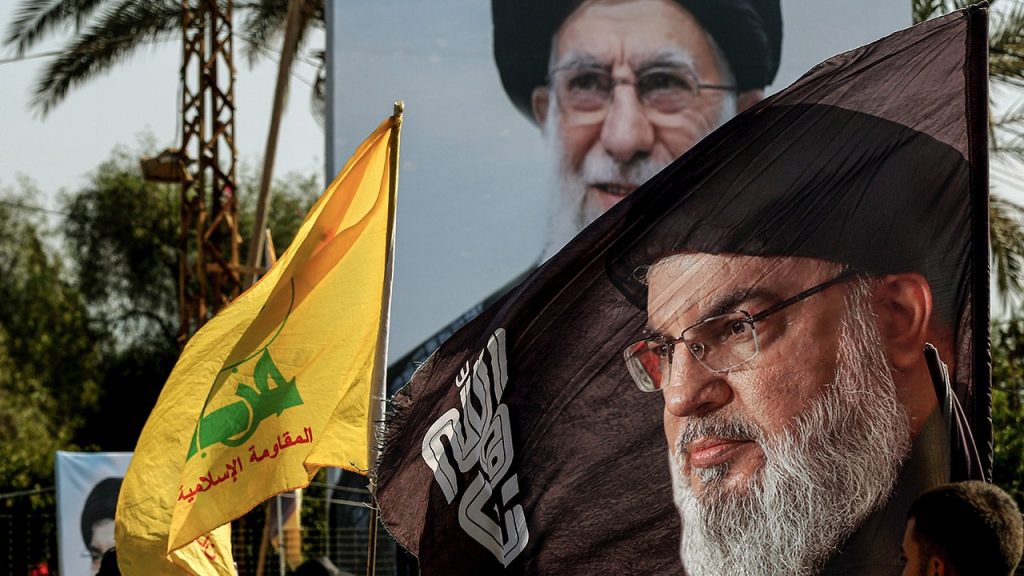Listen to the article
The Trump administration is escalating pressure on Lebanon to disarm Hezbollah, with U.S. Ambassador to Turkey Thomas Barrack declaring Lebanon a “failed state” due to its “paralyzed government” and inability to control the Iran-backed militant group.
Speaking in Bahrain on Saturday, Barrack highlighted the stark disparity between Hezbollah’s military capabilities and Lebanon’s official armed forces. According to Barrack, Hezbollah maintains 40,000 fighters and possesses between 15,000 and 20,000 rockets and missiles. The terrorist organization pays its militia members $2,200 monthly, while Lebanese Armed Forces (LAF) soldiers earn just $275 per month and operate with inferior equipment.
This assessment comes nine months after a U.S.-brokered ceasefire between Hezbollah and Israel went into effect in November 2024. Under the agreement, Lebanon’s government accepted an American plan to disarm Hezbollah by the end of 2025. However, Israeli officials and regional experts indicate that Lebanon’s fragile government and military have made little progress toward that goal.
“Israel is the only one disarming Hezbollah with its airstrikes,” said Sarit Zehavi, an Israeli security expert from the Israel Alma Research and Education Center. “The Lebanese army is far from enough. We don’t see proof of disarmament of Hezbollah by the Lebanese army. The Lebanese army is not entering villages in south Lebanon to search for the weapons of Hezbollah inside of the houses.”
Zehavi, who lives in northern Israel, emphasized that effective disarmament would require the Lebanese army to conduct house-to-house searches, confiscate weapons, and publicly document these efforts—steps she says are “not happening.”
A U.S. State Department official underscored the importance of disarming Hezbollah, telling Fox News Digital: “Disarming Hezbollah and other non-state actors, as well as ending Iran’s proxy activities, is crucial to ensuring peace and stability in Lebanon and across the region. An armed Hezbollah is a threat to Lebanon and its neighbors.”
Tensions escalated on Wednesday when the Lebanese army condemned an Israeli attack that killed a municipal worker in the border town of Blida, calling it “a criminal act” and a violation of the ceasefire agreement. The Israel Defense Forces stated its forces had opened fire after identifying “an immediate threat” during an operation to destroy Hezbollah infrastructure.
In response to the incident, Lebanese President Joseph Aoun instructed the army to confront any Israeli incursion into southern Lebanon. Shortly afterward, Israeli warplanes were reported flying over the presidential palace in Beirut. This marks Aoun’s first order for the army to engage Israeli troops since he became president in January.
The United Nations Interim Force In Lebanon (UNIFIL), tasked with aiding the Lebanese Army in disarming Hezbollah, condemned the Israeli attack as “a blatant violation of the Security Council Resolution 1701 and Lebanon’s sovereignty.” However, Israeli officials have long criticized UNIFIL for failing in its mandate to prevent Hezbollah from establishing military outposts along the Israeli border.
Tilak Pokharel, a UNIFIL spokesperson, defended the organization’s work, saying they operate in about 10% of Lebanon’s territory from the Litani River to the Blue Line demarcation area. “We have not seen any build-up, and we have been working every day and supporting them, the Lebanese Armed Forces. Until earlier this week, we found 360 weapons and ammunition caches since November 27, 2024.”
Matthew Levitt, a Hezbollah expert from the Washington Institute, noted that “nobody should be surprised that Hezbollah is trying hard to rebuild its capabilities.” He pointed to domestic pressure on the group, including actions by the Lebanese Central Bank against Hezbollah financial institutions.
Meanwhile, Walid Phares, an American academic expert on Lebanon, observed an increasing number of Lebanese citizens and political figures calling for diplomatic relations with Israel. “Many Lebanese have witnessed Hezbollah’s defeat in its confrontation with Israel, dispelling the long-standing notion — promoted by Hezbollah — that it is invincible,” Phares said.
Nevertheless, Phares warned that despite its military setbacks, “the militia in Lebanon shows no intention of relinquishing its weapons” and “continues to receive directives from the Islamic Republic of Iran to endure the current circumstances and prepare for future conflict.”
The State Department reiterated American support for Lebanon’s decision to disarm Hezbollah, calling it “courageous and historic” and affirming that the United States “will continue to partner with the Government of Lebanon to make sure that Lebanon is free, prosperous and safe for all Lebanese people.”
Fact Checker
Verify the accuracy of this article using The Disinformation Commission analysis and real-time sources.




23 Comments
If AISC keeps dropping, this becomes investable for me.
Good point. Watching costs and grades closely.
Interesting update on US Pressures Lebanon to Disarm Hezbollah as Envoy Labels Country a ‘Failed State’. Curious how the grades will trend next quarter.
Production mix shifting toward World might help margins if metals stay firm.
Good point. Watching costs and grades closely.
Silver leverage is strong here; beta cuts both ways though.
Good point. Watching costs and grades closely.
Good point. Watching costs and grades closely.
Interesting update on US Pressures Lebanon to Disarm Hezbollah as Envoy Labels Country a ‘Failed State’. Curious how the grades will trend next quarter.
Good point. Watching costs and grades closely.
Good point. Watching costs and grades closely.
Interesting update on US Pressures Lebanon to Disarm Hezbollah as Envoy Labels Country a ‘Failed State’. Curious how the grades will trend next quarter.
Good point. Watching costs and grades closely.
Good point. Watching costs and grades closely.
If AISC keeps dropping, this becomes investable for me.
Good point. Watching costs and grades closely.
Good point. Watching costs and grades closely.
Silver leverage is strong here; beta cuts both ways though.
Good point. Watching costs and grades closely.
Uranium names keep pushing higher—supply still tight into 2026.
Good point. Watching costs and grades closely.
Uranium names keep pushing higher—supply still tight into 2026.
Production mix shifting toward World might help margins if metals stay firm.